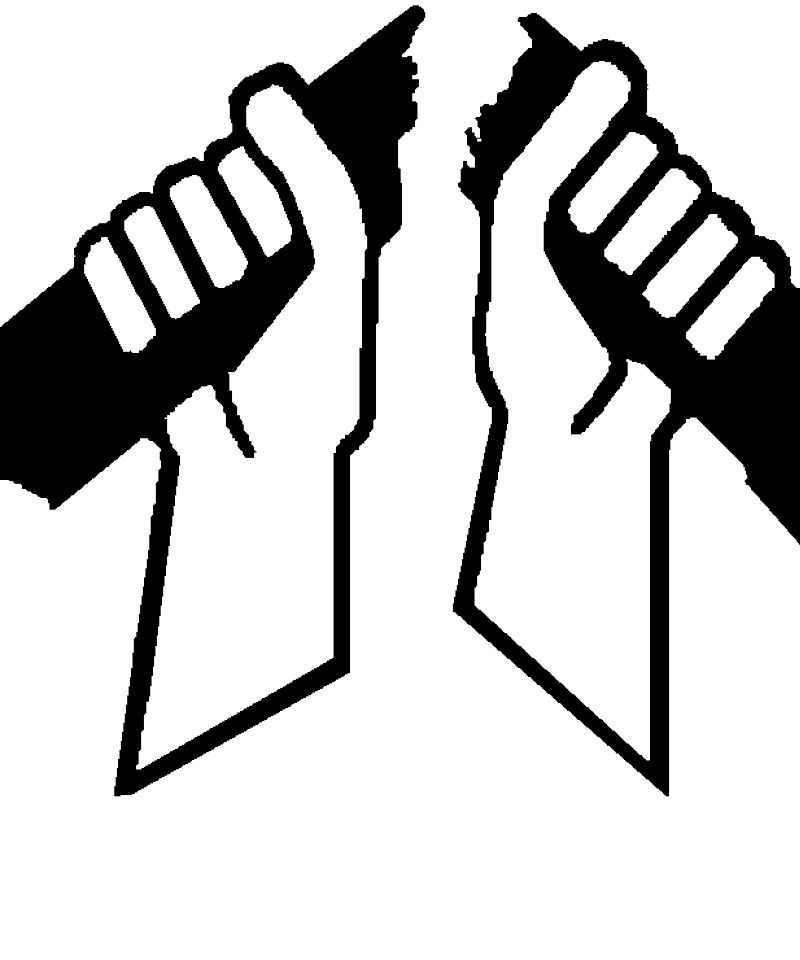New policy document: WRI responses to crises

Adopted by War Resisters' International's Council, October 2016
War Resisters' International (WRI) as a world-wide network is challenged with responding to – or not responding to – many crises situations around the world. There are the 'global' challenges and crises, such as large wars involving many different countries from different continents (like the wars in the former Yugoslavia in the 1990s, the Iraq war of 2003, or Syria/Iraq today). There are regional conflicts and crises like the ongoing occupation of Palestine or the war in South Sudan, and there is national or even local violence, and the flaring up of persecution, for example of conscientious objectors or human rights defenders, political murders etc., on all continents.
WRI could respond to more than one urgent situation each day, and quite often it receives proposals and suggestions to get engaged, sign statements or initiate campaigns on various issues. Obviously, WRI is not in a state to be able to respond to all such proposals, nor would that focusing on such proposals match our core identity. Our strengths lie in networking, linking and supporting each other, capacity building and campaigning around nonviolence and nonviolent action, rather than being a leading voice in public naming and shaming, or taking the lead in large international campaigns.
For that reason, we have formulated this policy to guide us in deciding when and how to respond to crises.
Decision-making On a Proposal to React
At least one of the following is necessary for us in order to consider making a response:
- The request to respond comes from an affiliate of WRI, or from a regional network aligned to WRI
- There is an affiliate based in the area of crisis
- An affiliate is acting on the crisis (not necessarily one from the area of crisis itself)
- There is no formal affiliate, but we know activists and/or organisations in the country who are personally involved
- A member of Council suggests a response
- Important other organisations or networks (partners of WRI) expect WRI to respond, for example suggest a joint statement
If at least one of these is given, in addition, the following criteria all need to be met:
- Reliable background information is available, for example through people we1 know and trust to give insight
- The position that WRI would take is not likely to be strongly opposed in its constituency (affiliates and core supporters).
- The response would be related to our principles and approaches.
- The kind of response requested matches our capacities (resources).
- The response would be likely to have a positive impact – ideally on the crisis, but at least for those requesting it, and not do unintended harm.
Some other aspects would strengthen the proposal to act:
- There is public awareness of an event (media headlines), and WRI has a position or an insight to contribute, which not so widely considered
- It is a long-term crisis but invisible or not widely known, and WRI could help to put it on the political agenda
- It is an event or crisis that has broader consequences for military developments, security paradigms, etc
- The crisis is seen by many people as a symbol for war and peace etc.
- The issue is part of a wider issue we are already working on
- Taking up the issue would strengthen WRI’s identity as a world-wide network (priority for requests and issues coming from the Global South).
- Existence of a local initiative to touch base and work together
- The response would be an opportunity to promote WRI's ongoing projects
Kinds of responses WRI has to offer
WRI has various strategies and instruments to respond to crises:
-
Writing or signing of public statements, publishing through its own channels of communication (website, newsletter etc.), and asking affiliates to publish through their channels of communication (see 'Functions of public statements' below)
-
Sending fact-finding missions or delegations to express solidarity (for example 2016 to Turkey)
-
Participate in or initiate nonviolent actions focusing on a crisis (for example nonviolent direct actions against NATO during Iraq war 2003)
-
Engage in capacity-building (offer trainings, for example 2016 for Eritrean activists)
-
Provide resources (extra website, handbooks or guides, for example website for Ukrainian and Russian COs)
-
Organize or host international speaking tours (for example South Korean COs in 2015)
-
Conduct joint actions, and support call-outs for them (e.g. Prisoners for Peace day, Countering the Militarisation of Youth week of action)
-
Support individuals at risk to leave a country
-
Support activists through protective measures (accompaniment) or facilitate contact to groups that specialize in this field (for example Balkan Peace Team in the 1990s)
-
Make use of its access to international bodies, for example UN human rights bodies.
Functions of Public Statements
- Visibility and thereby support for a local group / network by showing that they have international attention and support
- Formulating a pacifist / antimilitarist position or suggesting alternatives, and making this view more widely known
- Shaping political debate (nationally, internationally), and thereby making an impact
- Supporting local groups
- Demonstrating the importance of our work to supporters
- Making dissent known. It can be historically important to know that “someone disagreed”
###############################################
1 In this context ´we´means the Executive Committee, unless the Council or Assembly are meeting
Add new comment